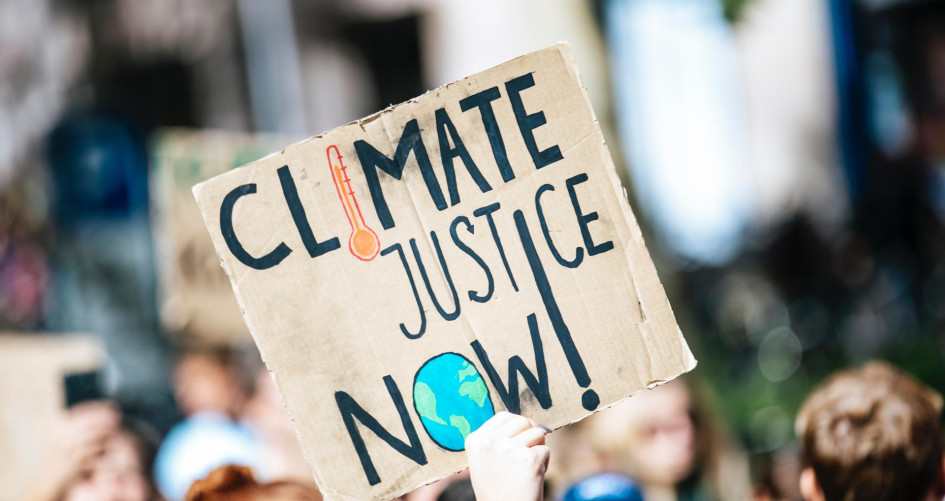It is sometimes hard not to feel depressed over the state of planet. From ever-increasing wildfires and floods to the devastating forecasts of even more climate crises to come, young people have grown up with a barrage of negative news, something which – unsurprisingly – is starting to have an impact on their state of mind.
Founded in 2019 by the then-19-year-old Clover Hogan, Force of Nature is a UK-based organisation that recognises – and helps combat – this growing eco-anxiety phenomenon. It does research and offers workshops and training in order to turn eco anxiety into action. Of course, eco-anxiety is not something that effects only the young, and Force of Nature works with teachers and environmental organisations around the world. They have built a network in more than 50 countries, launched a podcast and they are writing about sustainability issues on their blog.
It seems like such a network is needed. Recent research conducted by the group revealed some stark results: more than 70 per cent admit feeling anxious and hopeless about the future that they are inheriting. Only 26 per cent feel they can meaningfully contribute to solve the problem. A more recent survey among 10,000 people across 10 countries showed something even worse: 56 per cent of those respondents feel the future is “doomed.”
“This can come as such a shock,” Hogan said at the Action Hub at COP26. “When we think of young people feeling empowered, passionate and determined to make great change. We are all of those things, but we are [at the same time] grieving and experiencing pain.”
Hogan was joined on stage at the Action Hub by three of her colleagues, Sasha Wright, Alejandra Arias and Phoebe Hanson. All of them have experienced differing levels of climate anxiety.
“I avoided going to lectures because I couldn’t bear to listen to what they were going to tell me,” says the group’s Operations Director, Hanson. “The teachers told me: Here is the state of the world. But I was given no tools on how to deal with that. I was suffering from eco-anxiety, although I didn’t know it at the time,” she adds.
For Hanson, a central issue is the feeling of a lack of control. “A lot of this anxiety that comes from the climate crisis is not necessarily about how broken the planet is, but about how powerless we young people feel in the face of it. Vulnerable communities, young people, frontline communities. We are the people that are always left out of the decision-making rooms.”
Now Force of Nature is attempting to bridge that gap when they are invited to boardrooms with world leaders and decision makers. “They don’t sit there talking to a bunch of 20-year-olds because of an IPCC report or because of another doomsday headline, but because their child has come home to them, shared their eco anxiety and asked [them what they are] doing about the climate crisis?” Hogan says.
One of Force of Nature’s most innovative campaigns is Call Your Mother. The idea is to call ‘Mother Earth’ and talk about those emotions, as if you were talking to your own mother. The group also created an online platform for those messages to live on afterwards. There was even a pop-up telephone booth in Glasgow during COP26, where visitors could record their own message and post it on the platform.
The website features three options: you can have a check-in chat; you can have a rant, or you can send a message to the people in power. But the campaign is not just about expressing your own emotions, but, Hogan says,“ connecting to the voices of other people around the world who are in these spaces to those who are not in these spaces and hear each other is feeling.”
So, what should those who feel ‘eco-anxious’ do? Wright has three messages: firstly, eco anxiety is a perfectly normal response in the face of the climate crisis; secondly, eco anxiety can be a mixture of feeling such as hope and despair, all in the same moment. Thirdly, eco anxiety is not the central issue. The main issue is how we reach out and act out on those feelings.
In a world where eco-anxiety looks set to become more prevalent, Force of Nature’s messages will endure, and hopefully not just act as a coping mechanism, but a spur to real action, action that is needed if we are to avert the worst effects of the climate crisis.
